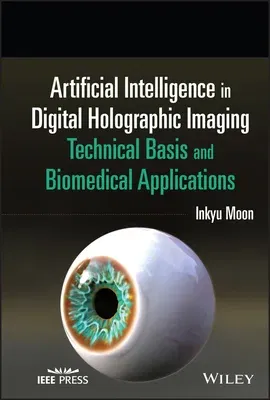Artificial Intelligence in Digital Holographic Imaging Technical Basis
and Biomedical Applications
An eye-opening discussion of 3D optical sensing, imaging, analysis,
and pattern recognition
Artificial intelligence (AI) has made great progress in recent years.
Digital holographic imaging has recently emerged as a powerful new
technique well suited to explore cell structure and dynamics with a
nanometric axial sensitivity and the ability to identify new cellular
biomarkers. By combining digital holography with AI technology,
including recent deep learning approaches, this system can achieve a
record-high accuracy in non-invasive, label-free cellular phenotypic
screening. It opens up a new path to data-driven diagnosis.
Artificial Intelligence in Digital Holographic Imaging introduces
key concepts and algorithms of AI to show how to build intelligent
holographic imaging systems drawing on techniques from artificial neural
networks, convolutional neural networks, and generative adversarial
network. Readers will be able to gain an understanding of the basics for
implementing AI in holographic imaging system designs and connecting
practical biomedical questions that arise from the use of digital
holography with various AI algorithms in intelligence models.
What's Inside
- Introductory background on digital holography
- Key concepts of digital holographic imaging
- Deep-learning techniques for holographic imaging
- AI techniques in holographic image analysis
- Holographic image-classification models
- Automated phenotypic analysis of live cells
For readers with various backgrounds, this book provides a detailed
discussion of the use of intelligent holographic imaging system in
biomedical fields with great potential for biomedical application.

